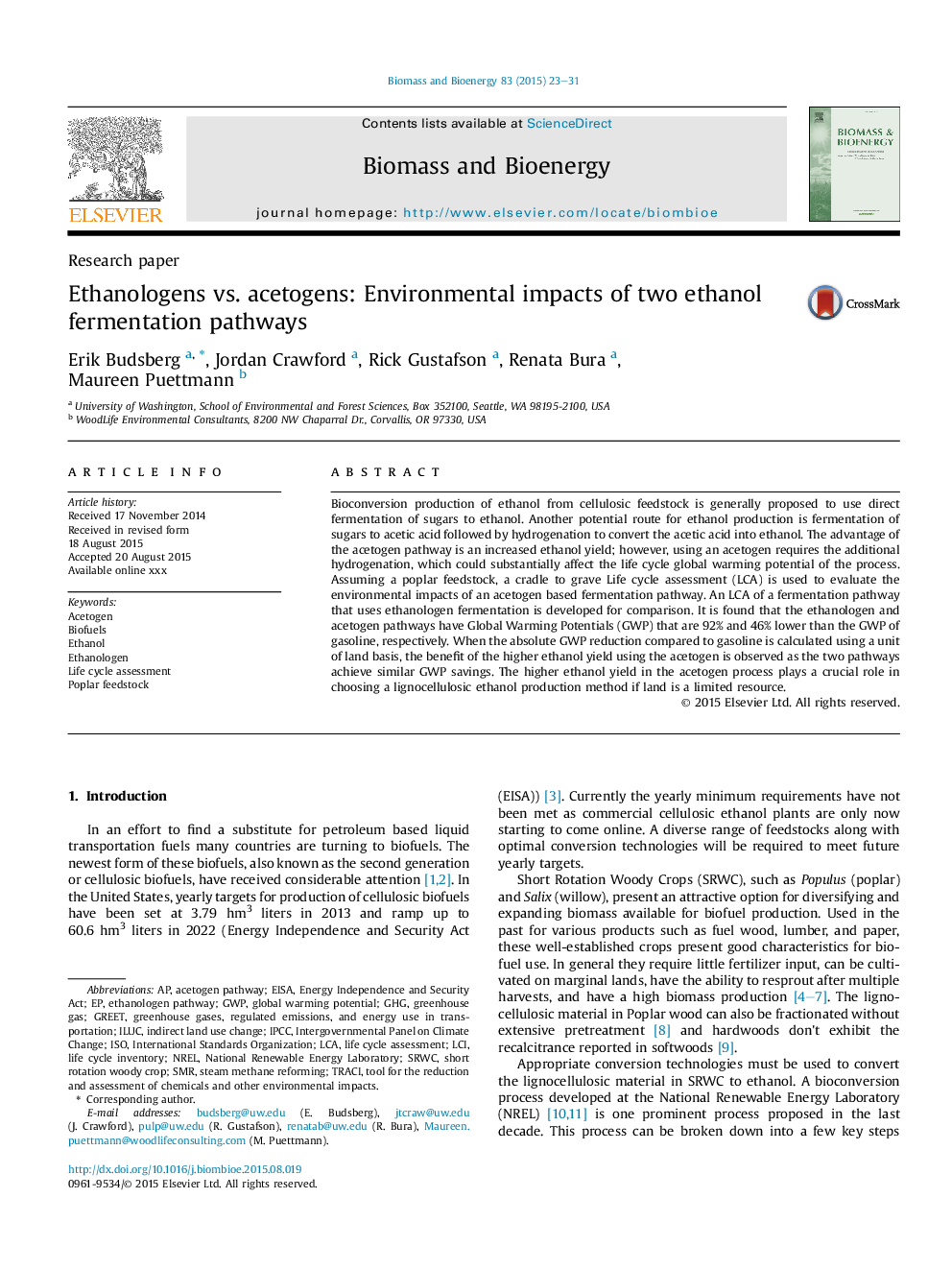| کد مقاله | کد نشریه | سال انتشار | مقاله انگلیسی | نسخه تمام متن |
|---|---|---|---|---|
| 7063598 | 1459810 | 2015 | 9 صفحه PDF | دانلود رایگان |
عنوان انگلیسی مقاله ISI
Ethanologens vs. acetogens: Environmental impacts of two ethanol fermentation pathways
دانلود مقاله + سفارش ترجمه
دانلود مقاله ISI انگلیسی
رایگان برای ایرانیان
کلمات کلیدی
TRACIShort rotation woody cropGWPNRELGHGSRWCIPCCSMRLCIEISAEnergy Independence and Security ActAcetogeniLUC - IluciaNational Renewable Energy Laboratory - آزمایشگاه ملی انرژی تجدید پذیرEthanol - اتانولLCA - ارزیابی چرخه حیاتLife Cycle Assessment - ارزیابی چرخه عمر یا چرخه حیاتSteam methane reforming - اصلاح کردن متان بخارISO - ایزوIndirect land use change - تغییر استفاده غیر مستقیم زمینInternational Standards Organization - سازمان بین المللی استانداردGREET - سلامBiofuels - سوخت های زیستیLife Cycle Inventory - موجودی چرخه زندگیIntergovernmental Panel on Climate Change - هیات بین دولتی در مورد تغییرات اقلیمیglobal warming potential - پتانسیل گرمایش جهانیGreenhouse gas - گاز گلخانه ایGreenhouse Gases, Regulated Emissions, and Energy Use in Transportation - گازهای گلخانه ای، انتشار گازهای گلخانه ای و استفاده از انرژی در حمل و نقل
موضوعات مرتبط
مهندسی و علوم پایه
مهندسی شیمی
تکنولوژی و شیمی فرآیندی
پیش نمایش صفحه اول مقاله

چکیده انگلیسی
Bioconversion production of ethanol from cellulosic feedstock is generally proposed to use direct fermentation of sugars to ethanol. Another potential route for ethanol production is fermentation of sugars to acetic acid followed by hydrogenation to convert the acetic acid into ethanol. The advantage of the acetogen pathway is an increased ethanol yield; however, using an acetogen requires the additional hydrogenation, which could substantially affect the life cycle global warming potential of the process. Assuming a poplar feedstock, a cradle to grave Life cycle assessment (LCA) is used to evaluate the environmental impacts of an acetogen based fermentation pathway. An LCA of a fermentation pathway that uses ethanologen fermentation is developed for comparison. It is found that the ethanologen and acetogen pathways have Global Warming Potentials (GWP) that are 92% and 46% lower than the GWP of gasoline, respectively. When the absolute GWP reduction compared to gasoline is calculated using a unit of land basis, the benefit of the higher ethanol yield using the acetogen is observed as the two pathways achieve similar GWP savings. The higher ethanol yield in the acetogen process plays a crucial role in choosing a lignocellulosic ethanol production method if land is a limited resource.
ناشر
Database: Elsevier - ScienceDirect (ساینس دایرکت)
Journal: Biomass and Bioenergy - Volume 83, December 2015, Pages 23-31
Journal: Biomass and Bioenergy - Volume 83, December 2015, Pages 23-31
نویسندگان
Erik Budsberg, Jordan Crawford, Rick Gustafson, Renata Bura, Maureen Puettmann,